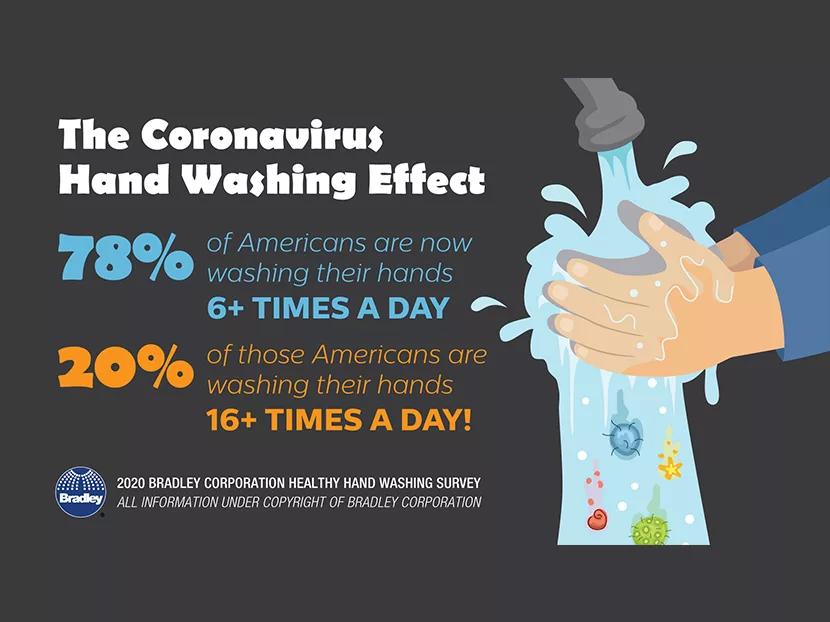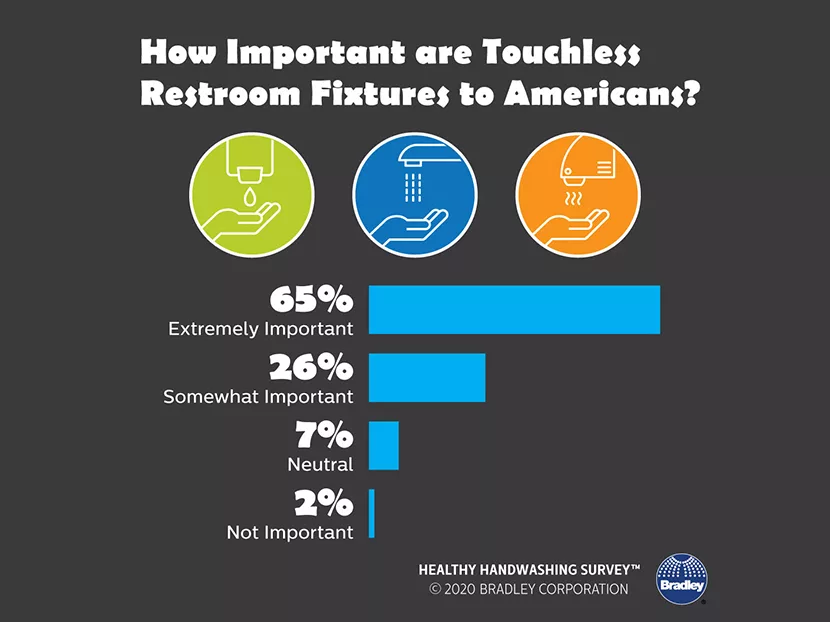Each year on Oct. 15, Global Handwashing Day advocates for how a simple and inexpensive action — handwashing with soap and water — can stop the spread of colds, flus and other infectious diseases. This year, due to COVID-19, the international day has taken on new-found prominence.
Health experts like the World Health Organization (WHO) and Centers for Disease Control and Prevention (CDC) have long shared the health benefits of handwashing with soap and water to guard against disease-causing organisms. During this pandemic, proper hand hygiene — along with other measures like social distancing and mask wearing — can’t be emphasized enough in a high-touch world.
While everyone at every age is susceptible to COVID-19, the elderly and those with preexisting conditions are especially vulnerable. Worldwide, diarrhea and pneumonia are the leading causes of death for children under the age of five, according to the Global Handwashing Partnership.
“No matter your age, health situation or where you live, diligently washing your hands with soap and water is among the best sickness-countering measures you can take to protect yourself and those around you,” said Jon Dommisse, director of strategy and corporate development for Bradley Corp. “Vigorous and thorough handwashing needs to be a priority now and in the future.”
This year’s theme of Global Handwashing Day, "Hand Hygiene for All," calls for universal hand hygiene to beat the virus today and ensure better health outcomes beyond the pandemic. “This day is an opportunity to design, test and replicate creative ways to encourage people to wash their hands with soap at critical times,” the Global Handwashing Partnership noted. “After all, this simple behavior can save lives. For children, handwashing can cut diarrhea by almost one-half and acute respiratory infections by nearly one-quarter.”
COVID-19 prompts more handwashing in United States
On a positive note, research shows the majority of Americans are following the CDC’s guidelines to wash with soap for 20 seconds. According to the Healthy Handwashing Survey conducted by Bradley Corp. in the midst of the pandemic, 90 percent of Americans said they are washing their hands more frequently or more thoroughly or longer and 78 percent are washing their hands six or more times a day. That’s compared to just 37 percent who washed up that often prior to the outbreak.
In addition, 77 percent are washing their hands for at least 20 seconds or longer. Prior to the outbreak, 57 percent estimated they washed for just five to 15 seconds.
In a similar study of high school students, 94 percent believe it is important to wash their hands to protect themselves from coronavirus and 76 percent correctly believe washing their hands with soap and water is more effective at removing germs than hand sanitizer. Further, 55 percent are now washing their hands six or more times a day compared to just 25 percent who were washing that frequently prior to the outbreak.
“Our research also found that the majority of Americans plan to continue their elevated handwashing habits,” Dommisse said. “Eighty-eight percent of adults and 73 percent of high school students believe they are very likely to maintain their increased handwashing regimen after the pandemic.
“Global Handwashing Day is a great reminder for businesses, schools and other establishments to ensure they are providing clean and well-maintained facilities that promote thorough handwashing. Touchless fixtures are one element that can help minimize cross contamination in restrooms. In fact, 91 percent of Americans believe it’s important that restrooms have touchless fixtures.”
Bradley Corp. is a leading manufacturer of commercial handwashing fixtures, washroom accessories, restroom partitions, emergency fixtures and solid plastic lockers. For more information, visit www.bradleycorp.com/handwashing and www.globalhandwashing.org/global-handwashing-day.






